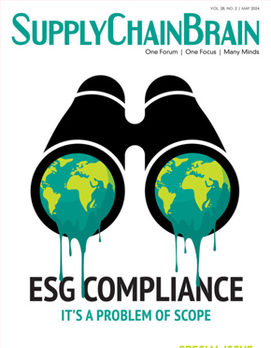
Nafta was one of President Trump’s chief targets during the 2016 presidential campaign. He referred to it on numerous occasions as “the worst trade deal in history.” So it was no surprise when the Trump Administration triggered a wholesale renegotiation of the pact, dragging Canada and Mexico back to the bargaining table.
Last October, the Administration expressed hopes that the talks could be wrapped up by March of 2018. That date turned out to be wildly unrealistic. The three Nafta signatories are now in the throes of a seventh round of negotiations, with no clear end in sight.
Cliffod Sosnow is a partner in the Canadian-based law firm of Fasken Martineau. He says the parties are in the process of negotiating “a lot of hard issues.” But he further characterizes the talks as containing “a certain degree of dysfunction.” Worse, “there’s a lot of poison.”
Trump has repeatedly threatened to pull out of Nafta altogether. The Canadians have, at various times, themselves been on the verge of walking away from the deal. And the President has made no friends in Mexico, with his continuing insistence that it pay for a border wall to stop illegal immigration.
From a Canadian perspective, “the dynamics are rough from what we can see,” says Sosnow. “Which is odd, because it was supposed to be a tweaking between Canada and the U.S. The U.S.-Mexico relationship was supposed to be the tough one.”
According to Sosnow, five key issues are dominating the talks as they relate to the U.S. and Canada: rules on government procurement, protection for the Canadian dairy industry, automotive content, investor-state dispute settlement, and a U.S. proposal for a sunset clause that would limit any new deal to just five years.
Certain proposals put forth by the U.S. in those areas “frankly make no sense” to Canadian negotiators, Sosnow says. On the creation of reciprocal procurement agreements, a “dollar-for-dollar” match would actually give Americans less access to that lucrative market. On autos, a U.S. demand to boost from 62.5 percent to 85 percent the minimum North American content needed to qualify for tariff-free treatment would establish “the highest [bar] in the world. It would be a hard one to manage because of disruption [to industry].”
The issue of investor-state dispute settlement (ISDS), allowing private business to sue governments for alleged discriminatory practices, is an especially thorny one. It was one of the provisions that drove American opposition to the proposed Trans-Pacific Partnership. The Trump Administration put an end to U.S. ratification of that pact, which continues to move forward among 11 other Pacific Rim nations, at the beginning of 2017.
ISDS was part of the original Nafta, but the Trump Administration reportedly is hostile to its inclusion in a Nafta 2.0, a proposal to which the Canadian business community “is probably indifferent,” Sosnow says. Nevertheless, ISDS could prove to be a sticking point in the conclusion of any new agreement. Canadian Prime Minister Justin Trudeau is said to have told U.S. Trade Representative Robert Lighthizer that he would be open to removing ISDS from Nafta, and possibly pursuing a separate bilateral agreement with Mexico on that issue.
As for a sunset clause, “Canada has a lot of difficulty with that one,” Sosnow notes. “It’s more than happy to have a review mechanism, but doesn’t like the idea of the insecurity that creates.”
Other key issues, such as customs rules and digital trade, appear to be less contentious. The latter is cited by supporters of renegotiation as a big reason why we need a new Nafta. After all, the old agreement was signed at a time when digital trade concerns — for example, protection for proprietary business algorithms and the location of servers supporting cross-border commerce — barely existed. Still, says Sosnow, at this point “it’s not clear what the package of agreements is.”
So what happens now? One potentially serious obstacle to progress lies in the scheduling of elections within each of the Nafta countries. Mexico’s general election takes place on July 1, with a new president to be sworn in in early December. In November comes the U.S. midterms, the result of which could alter the balance of power between Republicans and Democrats in Congress. Then, in 2019, Canada’s election season gets underway.
With the domestic political situation in all three countries in flux, any movement on Nafta 2.0 in 2018 begins to look increasingly doubtful. “There’s a reasonable likelihood that we’ll see something in 2019,” says Sosnow. “But what it will look like — who knows?”
In the end, an overhaul of Nafta was probably going to happen even without the Trump Administration’s hostility to multilateral pacts. “It’s highly unusual for a 25-year agreement to go without being changed,” notes Sosnow. But the current negotiations are proceeding with a degree of confusion and uncertainty that is unprecedented in the modern-day world of trade diplomacy. And they raise the possibility that real harm could be done to trade and commerce between three strong partners.
“For Canada, the intention was to do no harm,” says Sosnow, “but [negotiations] have morphed into something else now: How do we protect the U.S.-Canada trading relationship?”







